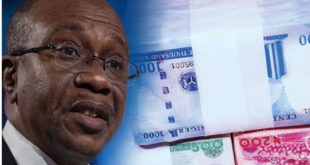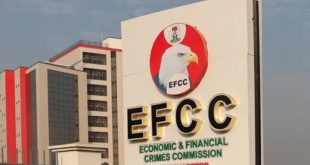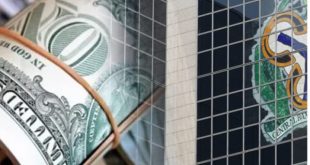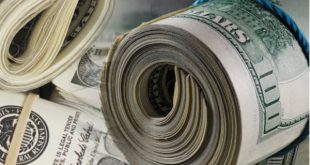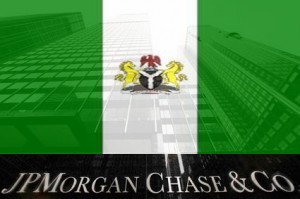
The plunge in oil prices which are down more than $60 since June to below $45 yesterday is reversing gains made by Nigerian bonds since their 2012 inclusion in the JPMorgan global emerging market (EM) bond index as yields soar.
The 16.39 percent bonds maturing January 2022 which traded at 12.66 percent, on the first day after inclusion in the GBI – EM index in October 2012, has seen its yields increase to 15.55 percent according to Friday’s prices published on the Financial Markets Dealers Quotation website.

“The significant back-up in yields in the Nigerian fixed income market is a function of the lower oil price and recent capital flight, but in a sense it also mirrors the lack of fiscal savings in the country,” Samir Gadio, Head of Africa Strategy and FICC Research at Standard Chartered Bank, said in a response to questions.
Rising bond yields is leading to higher borrowing costs at a time when the country’s finances are stretched due to falling oil prices.

Interest expense on the total public debt (domestic and foreign) is forecast to rise by 32.4 percent to N943 billion in 2015 from N712 billion in 2014, according to the Federal Governments budget proposals.

This is 48 percent higher than the N634 billion budgeted for capital expenditure, as the slide in government revenues reduces funds available to finance infrastructure projects needed to unlock growth.
“Bond yields have inched up towards the level before the JP Morgan moment in August 2012,” said FBN Capital analysts led by Gregory Kronsten, in a January 08 note.
The Debt Management Office (DMO) provisional calendar for Q1 2015, shows it is seeking to raise between N215bn ($1.17bn) and N305bn ($1.66bn) from the sale of FGN bonds.
The DMO sold N24 billion, N20 billion and N28 billion in 5, 10 and 20 – Year notes at marginal rates 15.2000 percent, 15.4290 percent, and 15.4790 percent, respectively at its primary auction held last week.
Investors wary of the uncertain macro environment in Nigeria are demanding higher interest rates to hold government securities.
The Nigerian economy gets 70 of its income and 95 percent of foreign exchange from crude oil sales whose prices are 30 percent below the government’s benchmark price of $65 for the 2015 budget.
Nigeria’s inflation rose 20 basis points to 8 percent in December, within the CBN’s target range of 6 – 9 percent.
The CBN’s gross Foreign Exchange (FX) reserves stood at $34.4 billion as at 12 January 2015, down nearly 20 percent from a year ago.
The IMF forecasts Africa’s largest economy will expand 5 percent in 2015, down from 6.5 percent last year, while stock prices gauged by the benchmark NSE All Share Index have fallen 17.07 percent this year, after dropping by 16.7 percent in 2014.
The local currency the naira fell 0.54 percent on Friday against the U.S. currency and closed at N185.10 to the dollar, according to data from the FMDQ.
“From an exchange rate perspective, oil producing economies have been under pressure in recent months. A comparative analysis shows that oil credits with large savings have been able to minimise interest rates,” Gadio said.
 MMS PLUS NG – Maritime, Aviation, Business, Oil and Gas News Online Newspaper with coverage in Maritime, Oil and Gas, Aviation, Power and Energy as well as Financial News
MMS PLUS NG – Maritime, Aviation, Business, Oil and Gas News Online Newspaper with coverage in Maritime, Oil and Gas, Aviation, Power and Energy as well as Financial News




